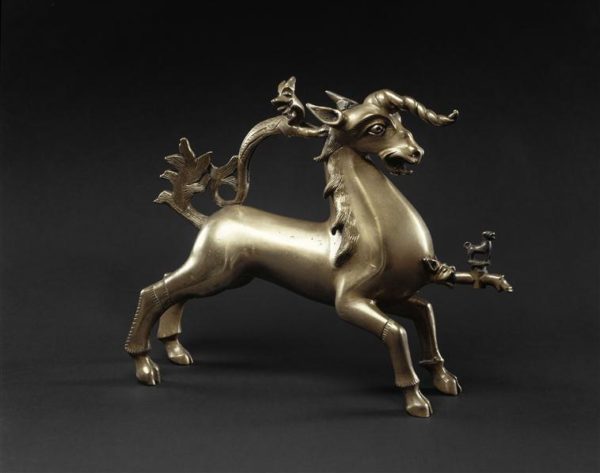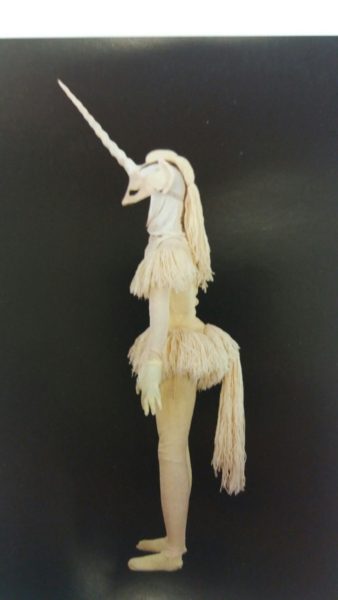 |
| Magical Unicorn from the Middle Ages |
Not only this Magical Unicorn, but six other Unicorn Tapestries from the middle ages can be found at the Musee de Cluny museum in Europe. These Magical Unicorns have ignited the fantasy of artists as well as common people. The unicorns were considered mythical creatures living in India, they're believed to be an inspired by the rhino. Later on they are turned into a mythical beast and it says "which featured as the incarnation in an allegory where the animal sees the maiden alias the Virgin Mary and lays its head in her lap and falls asleep." Later the allegory was extended and called a love story. The unicorn was later used on armor.
In the Middle Ages the tusks of narwhals were put forward as horns from the unicorns and were highly prized. Not only were they used for art, but they were also used as cups, as the actual horns of unicorns were believed to be poison. Until the 17th century when the myth was proven wrong by a Danish scientist, Ole Worm.

The six tapestries were found damp, moldy, and slowly composing at the Boussac Castle in 1841.
They were later conserved and brought back to their former glory. The exhibit not only features art about the unicorns, but also modern renderings of the myths in paintings, posters, videos, and costumes.



I really liked your piece on the magical unicorns. I didn't know that they took the horns of narwhals in the place of unicorns. It's crazy how unicorns were actually thought to be real during this time till the 17th century.
ReplyDeleteI've never associated unicorns with medieval Europe. I always considered them to be "wonderland" or fantasy creatures. Hearing they were put on shields is pretty cool!
ReplyDeleteThe concept of unicorns in the Middle Ages is new to me, but I especially did not think they would add them to the armor! It is very interesting that they were mythical creatures in India. I would have never considered that the place.
ReplyDeleteIt was interesting reading about how unicorns shaped much of the Middle Ages, especially that many would not perceive them as an important concept during that time period. I had no idea that the tusks of narwhals had so many practical uses when it comes to unicorns, and it was also interesting how art involving unicorns can be traced back to the Middle Ages.
ReplyDeleteI find it intresting how we still today treat unicorns as mythical creatures and still hold them to such and ideal. Especially when you look at other mythical creatures that have nowhere near the popularity
ReplyDeleteIt is so interesting how many of our modern day fairytales stem from so far in our past.
ReplyDeleteI've never heard of unicorns in the Medieval times, but this post did a great job of teaching me! It is interesting that narwhal horns were depicted as unicorn horns. I wonder how that Danish scientist ended up proving that a unicorn was not poisonous, I found that funny.
ReplyDeleteErica, this is a really interesting piece on magical unicorns. It is crazy to me that people of the Middle Ages placed so much thoughts on unicorns. I also cannot believe that so many thought the horns of unicorns were poison, and that this myth lasted all the way until the 17th century! This is a very cool and unique topic, and you did a great job analyzing these magical unicorns.
ReplyDeleteI really find it interesting that they made a connection between unicorns, narwhals, and rhinos.
ReplyDeleteUnicorns have been one of my favorite fantasy creatures since I was a little girl. I always assumed they'd seen a rhino and got confused when I thought about the origins of the unicorn myth. It wasn't until high school that I found out narwhals are real, and I began to wonder if perhaps the myth came from both of the real life creatures. Also I now have the amusing mental image of somebody trying to attach a narwhal horn onto a white horse to pass it off as a unicorn.
ReplyDelete